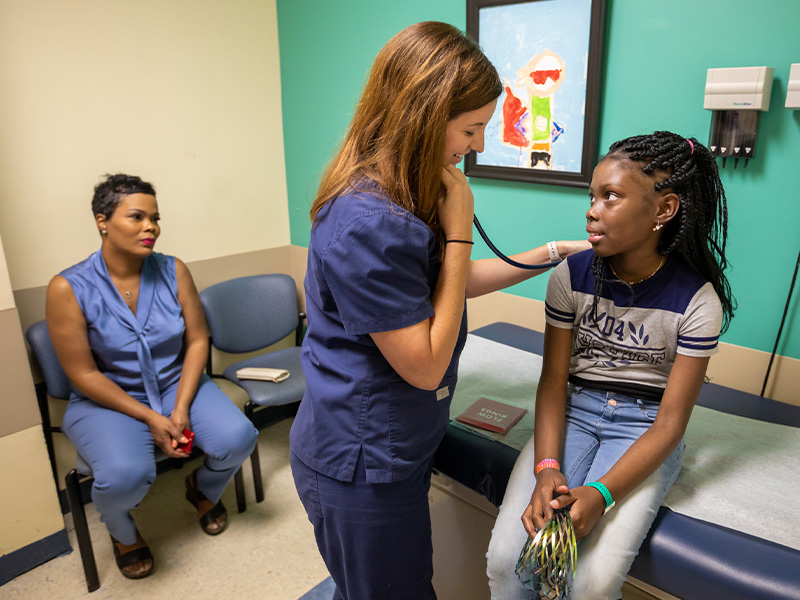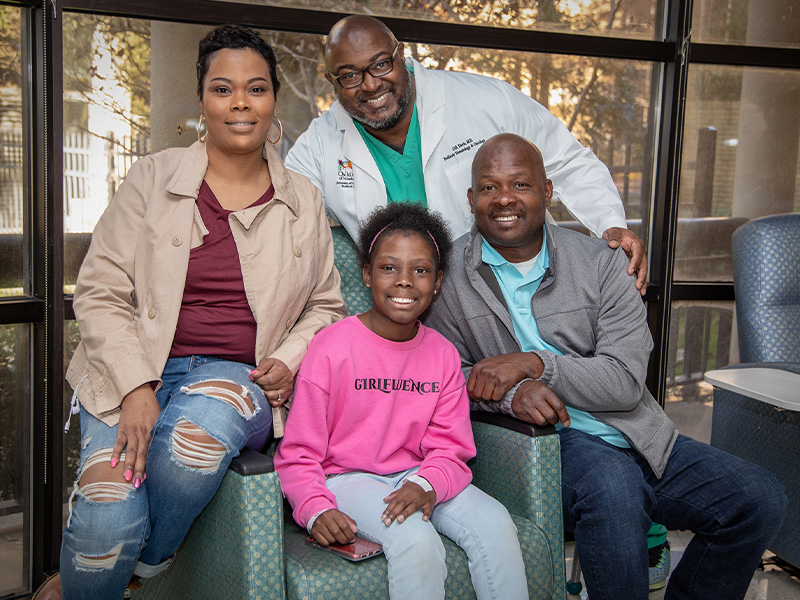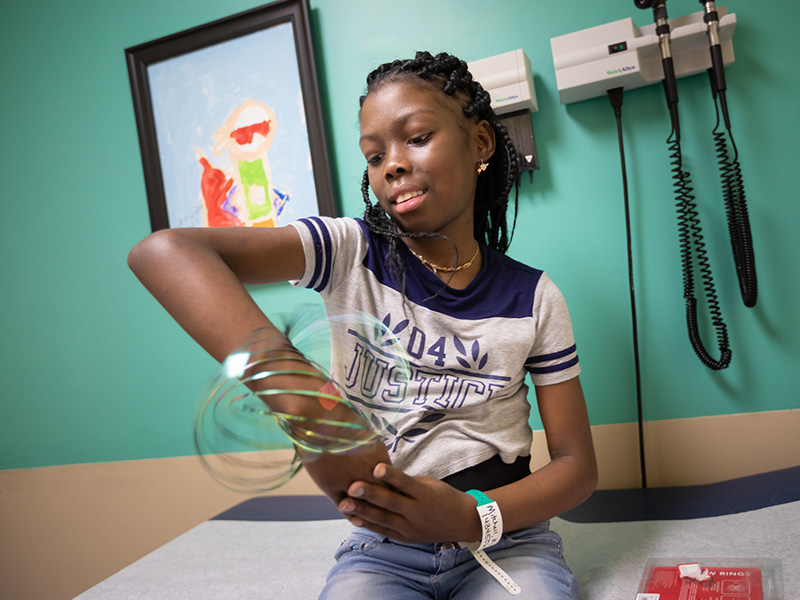Half match, whole hope: state’s first pediatric haploidentical transplant patient free from sickle cell

What if a cure for your child’s life-threatening sickle cell disease depended on finding a match for a bone marrow transplant?
That was the situation Darold and Joneaset Mitchell of Flowood faced with daughter Kali, who became the first pediatric patient to receive a haploidentical bone marrow transplant in Mississippi. The transplant was performed by Children’s of Mississippi hematologist/oncologist Dr. Dereck Davis.
Today, Kali, a straight-A student at Northwest Rankin Elementary, is free from the sickle cell disease that once threatened her life.
A severe pain crisis sent Kali to the pediatric intensive care unit at the University of Mississippi Medical Center in 2016. There, she lived through pneumonia and other complications.
“Her doctors told us that, if she had another sickle cell pain crisis, it would be more severe and that she might not survive,” Joneaset said. “They recommended that Kali get a bone marrow transplant.”
Sickle cell disease, an inherited condition in which there aren’t enough healthy red blood cells to carry adequate oxygen throughout the body, affects about 100,000 Americans and about one out of every 365 African-American births.
The condition is named for sickle- or crescent-shaped red blood cells, which can get stuck in small blood vessels. This can slow or block blood flow and oxygen to parts of the body, causing pain and potential damage.

Bone marrow transplant offers the only potential cure for sickle cell anemia, but finding a donor who is an exact match can be difficult. In the past, when a fully matched donor could not be found, the bone marrow transplant was not possible. Now there is hope for these patients.
In haploidentical transplants, doctors to use “half-matched” donors through new drug protocol that allows the body to accept the matched donor cells and attack the cells that would keep the body from accepting the transplant.
Nearly all patients who need a bone marrow donor now have a potential donor, Davis said. Joneaset was the closest match to Kali.
“I would do anything for her,” Joneaset said, “but donating bone marrow was not difficult. It required an overnight hospital stay, and it wasn’t very painful.”
Davis, a Shelby native and an alumnus of Tougaloo College, earned his M.D. at the University of South Alabama College of Medicine. He joined UMMC in July 2018 as an assistant professor of pediatrics after completing his pediatric residency and pediatric hematology-oncology fellowship there.
In 2017, Davis started a blood and marrow transplantation fellowship at Children’s Healthcare of Atlanta, a part of Emory University, bringing pediatric haploidentical skills to UMMC. Children’s of Mississippi, the pediatric arm of the Medical Center, is the only place in the state children can receive those life-saving transplants.
“Kali was a good choice for a haploidentical bone marrow transplant because of previous compliance with medication, and she was in good health prior to the transplant,” Davis said. “Her transplant was completed over a year ago, and she is doing very well.”

Following the transplant recommendation, her family moved from Noxubee County to Flowood to be closer to Children’s of Mississippi. From August to November in 2018, she was an inpatient in the state’s only children’s hospital and in UMMC’s bone marrow transplant unit.
During that time, Kali came down with pneumonia, requiring the use of a ventilator. She also had to use a feeding tube at different times during her stay.
Through her health battles, Kali has been a “great patient,” Davis said. “She asks a lot of questions, which is a really good thing, and she always tells me how she is feeling. Her curiosity and communication help us in treating her.”
By Thanksgiving 2018, Kali was able to spend the holiday with her family at her grandmother’s home, but she had to wear a mask to guard against infection and had lost 30 pounds.
This year is different. She’s stronger, healthier and able to get out to fall activities including taking in University of Memphis football games with her family and getting a jump on Christmas by going Black Friday shopping. From savoring ham, dressing and macaroni and cheese with family to shopping with her mom, Kali is enjoying this holiday season’s start as well as her new-found health.
The Mitchell family hopes their experience will help others with sickle cell, Joneaset said. “We’ve heard from other families and hope this treatment can help them, too.”
Davis agrees. “We are evaluating other children and educating families about all of the curative options for sickle cell disease. Historically, only those with full matched siblings were transplanted due to the significant risk associated with unmatched donor transplants. Haploidentical transplantation opens up a large pool of donors that previously we wouldn’t have had.”

